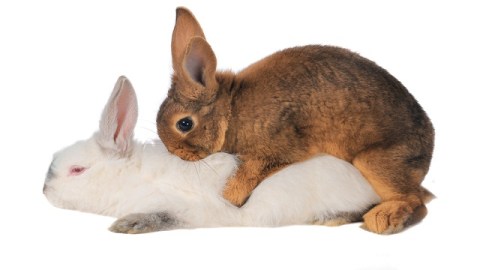Always as good as the first time?

In the 80’s classic movie, FAST TIMES AT RIDGEMONT HIGH, experienced high school ingenue Linda Barrett tells her younger friend Stacy Hamilton that she should just lose her virginity already.
“It’s no huge thing. It’s just sex,” Linda advises, pushing Stacy towards a date with much-older, more experienced stereo salesman. Of course, once Stacy does the deed, she’s not so sure Linda was right about it being “no huge thing.”
We, as a society, place a lot of emphasis on our first sexual encounters. It’s something to run towards (or avoid until everything is “right”). It’s something we put a lot of constraints around–concerning age, culture, romance, relationship status and even which sexual acts are permitted. It’s a milestone, a rite of passage, a taboo and a “gift.” We’ve made the loss of virginity into a “huge thing” — and, now, a new study suggests that one’s first time can actually predict later sexual satisfaction.
The researchers asked over 300 students to chronicle their first sexual encounters, both physically and emotionally–and rank the experience in terms of anxiety, contentment and regret. They also filled out questionnaires about their current sex life, with an emphasis on satisfaction and well-being. The final part of the study had these students then keep a sexual diary for two weeks, keeping a detailed journal of their sexual encounters.
After looking at the data, Smith and Shaffer found that having a positive first time made a difference–and was predictive of physical and emotional satisfaction during sex later in life. Feeling loved and respected the first time around was associated with having a good and fulfilling sex life later. Conversely, when the participants reported high levels of anxiety and dissatisfaction with the loss of their virginity, they demonstrated less satisfaction with their current sexual activities. The results were published in the Journal of Sexual and Marital Therapy.
Shaffer attributes this finding to a general pattern of thought and behavior that may permeate the way that people think about sex in general. He says, “While this study doesn’t prove that a better first time makes for a better sex life in general, a person’s experience of losing their virginity may set the pattern for years to come.”
Granted, this study only offers correlation data–we can’t determine causation. And given the age of the participants–undergraduate students, I’m not sure they had enough sexual experience to determine whether their first time really made that much of a difference. But still…the idea is compelling.
What do you think? Did your first time color the way you look at sex? Was your first encounter predictive of your current sex life?
Photo credit: panbazil/shutterstock.com




